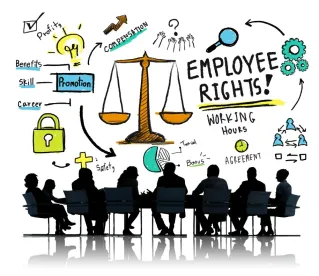On May 8, 2019, the U.S. Seventh Circuit Court of Appeals reaffirmed its test to determine whether a worker qualifies as an “employee” as defined by and subject to Title VII protections.
In this case, the plaintiff was a physician who maintained practice privileges at defendant Hospital. Most of her revenue came from the work she performed at the Hospital, and the Hospital subjected her to peer-review proceedings. Nevertheless, the Court ruled that she was not an “employee” of the Hospital for purposes of Title VII, but was instead an independent contractor.
In its decision, the Court reaffirmed that the following factors are relevant to determining an individual’s employment status under the statute:
-
the extent of the employer’s control and supervision over the worker, including directions on scheduling and performance of work;
-
the kind of occupation and nature of skill required, including whether skills are obtained in the workplace;
-
responsibility for the costs of operation, such as equipment, supplies, fees, licenses, workplace, and maintenance of operations;
-
method and form of payment and benefits; and
-
length of job commitment and/or expectations.
The Court emphasized that the most important factor is the employer’s right to control the worker’s conduct and performance. While acknowledging that a physician who enjoys hospital staff privileges could share an indirect employer-employee relationship with a hospital sufficient to invoke Title VII protection, the Court ultimately held that subjecting the plaintiff to peer review did not meet the necessary control threshold to create an employee-employer relationship with the Hospital.
The Seventh Circuit’s decision comes as welcome news for employers, as the employee/independent contractor distinction is currently in flux.



 />i
/>i

